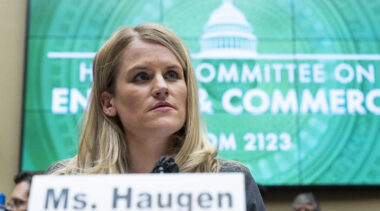Grayce Burns is a technology policy analyst at Reason Foundation.
Passionate about approaching issues of technology and innovation policies from a principled perspective, Grayce’s research focuses on technological advancements, municipal-broadband, and public-private technology partnerships.
Grayce has previously held roles with the London School of Economics’ Department of Law, the Christian Legal Society, and the State of Maryland’s Judicial and Legislative branches.
Grayce holds a Dual Bachelor of Arts Degree from The College of William and Mary in Philosophy and Public Policy and is a member of the Phi Beta Kappa Alpha of Virginia Chapter. Most recently, Grayce completed a Master of Science in Philosophy and Public Policy at The London School of Economics and Political Science.
-
The pitfalls of regulating app stores
Policymakers should continue to let app stores innovate and evolve without policy intended to force them into certain practices.
-
Congress aims at big tech companies but would hurt startups and innovation
The bill aims to limit big tech's power, but it would actually end up limiting innovation, start-up companies, and economic growth.
-
Colorado Springs doesn’t need to build public broadband
Data suggest that private interests in the market may make public broadband infrastructure unnecessary and ultimately a waste of taxpayer dollars.
-
Social media companies and Section 230 are not to blame for Jan. 6 riot
Section 230 helps protect free speech online.
-
California’s misguided bill to let parents sue for social media addiction
California’s proposed “Social Media Platform Duty to Children Act” relies upon a selective use of data that stirs up a false sense of panic about a promising new technology.
-
Courts allow border agents to freely search Americans’ cell phones
“Americans’ rights shouldn’t evaporate when we’re near the border,” said Sen. Ron Wyden.
-
Laserweeding could eventually eliminate the need for many chemical herbicides
Technological advancements could largely negate the future need for chemical herbicides.
-
The use and future of artificial intelligence monitoring in prisons
Ultimately, legislators should be very wary of artificial intelligence's current shortcomings before authorizing expansions of its use.
-
Congress shouldn’t jump the gun on NFT regulations
NFT regulations would limit growth and innovation in the industry.
-
The new federal broadband subsidy program is already plagued by fraud
Report says providers and providers’ sales agents are driving improper enrollments in federal broadband subsidy program.
-
Apple App Store case gives a glimpse of future problems if Congress overregulates tech
Federal tech regulations are likely to be out of date or redundant by the time they are implemented.
-
New York City’s misguided automated vehicle rules
The new rule means automated vehicle developers would face legal uncertainty and may be deterred from testing their technologies in the city at all.












